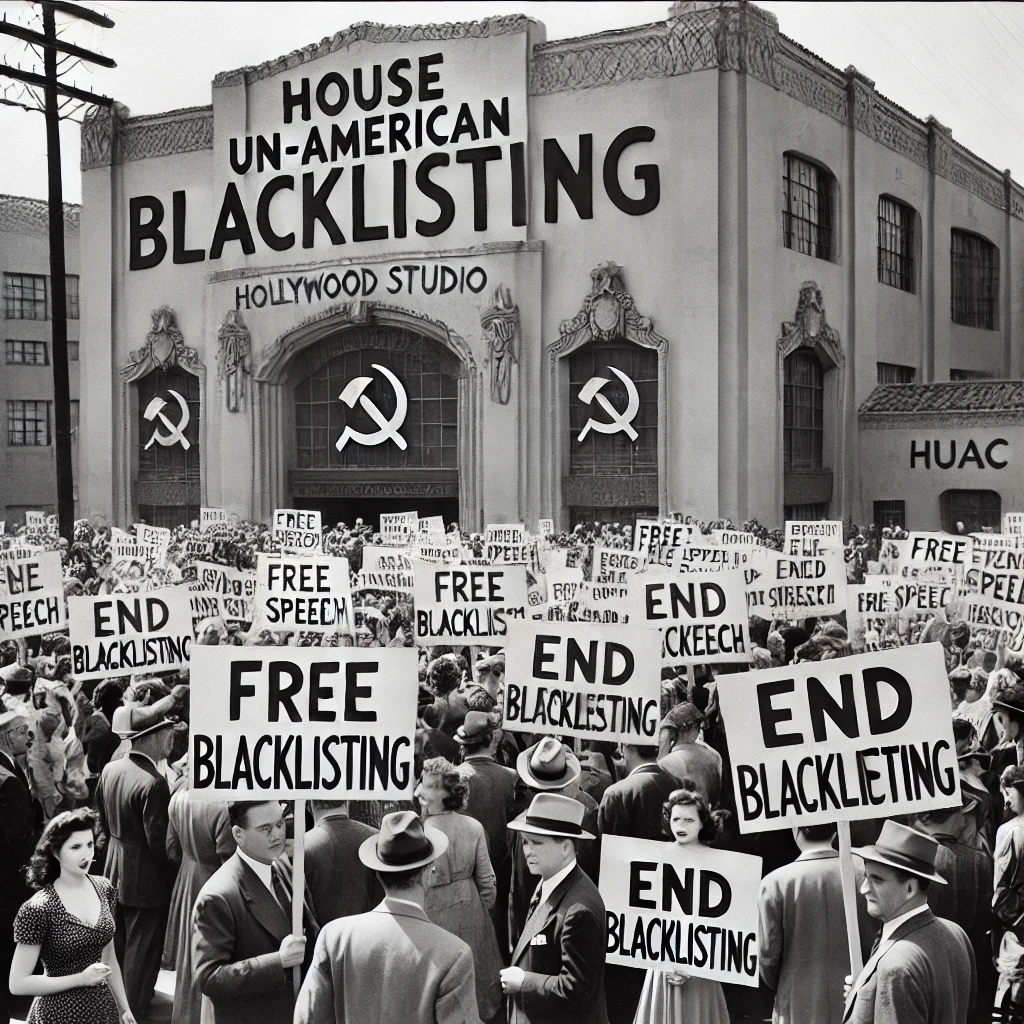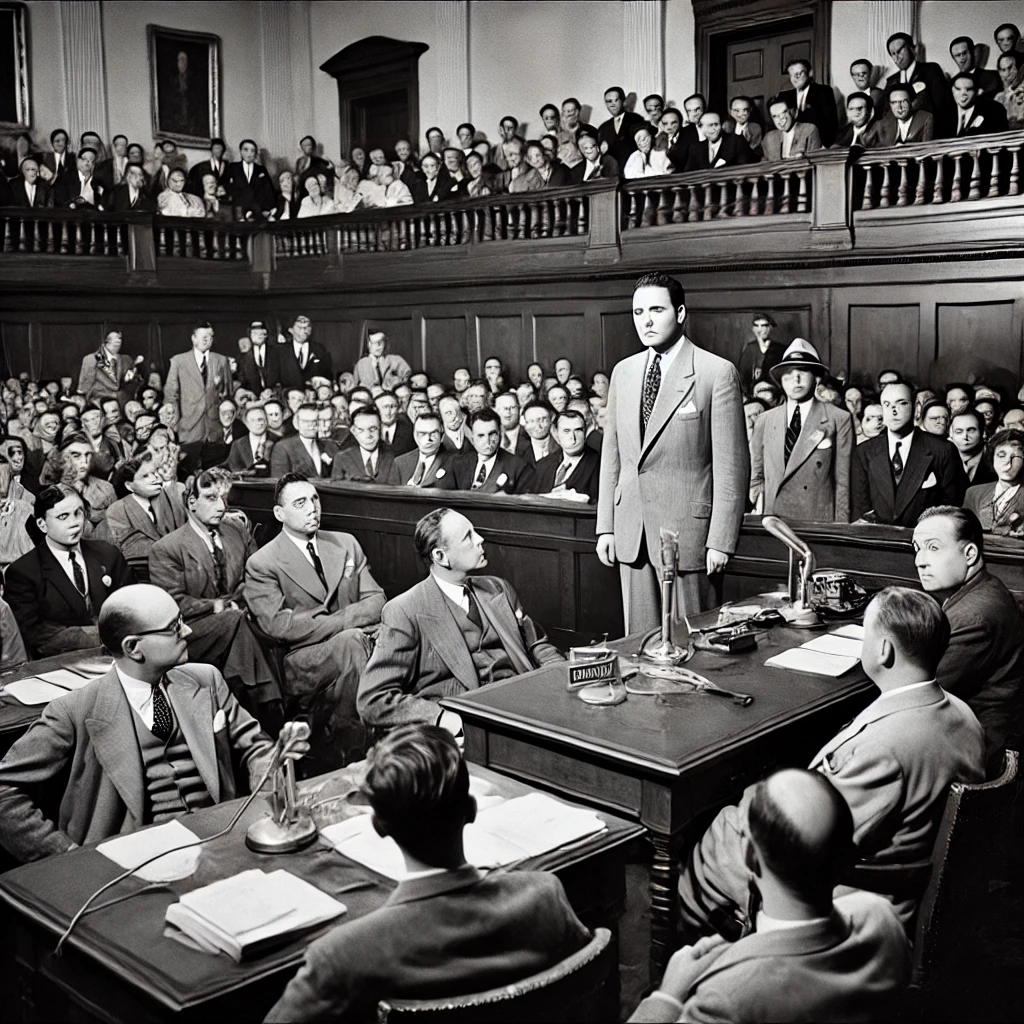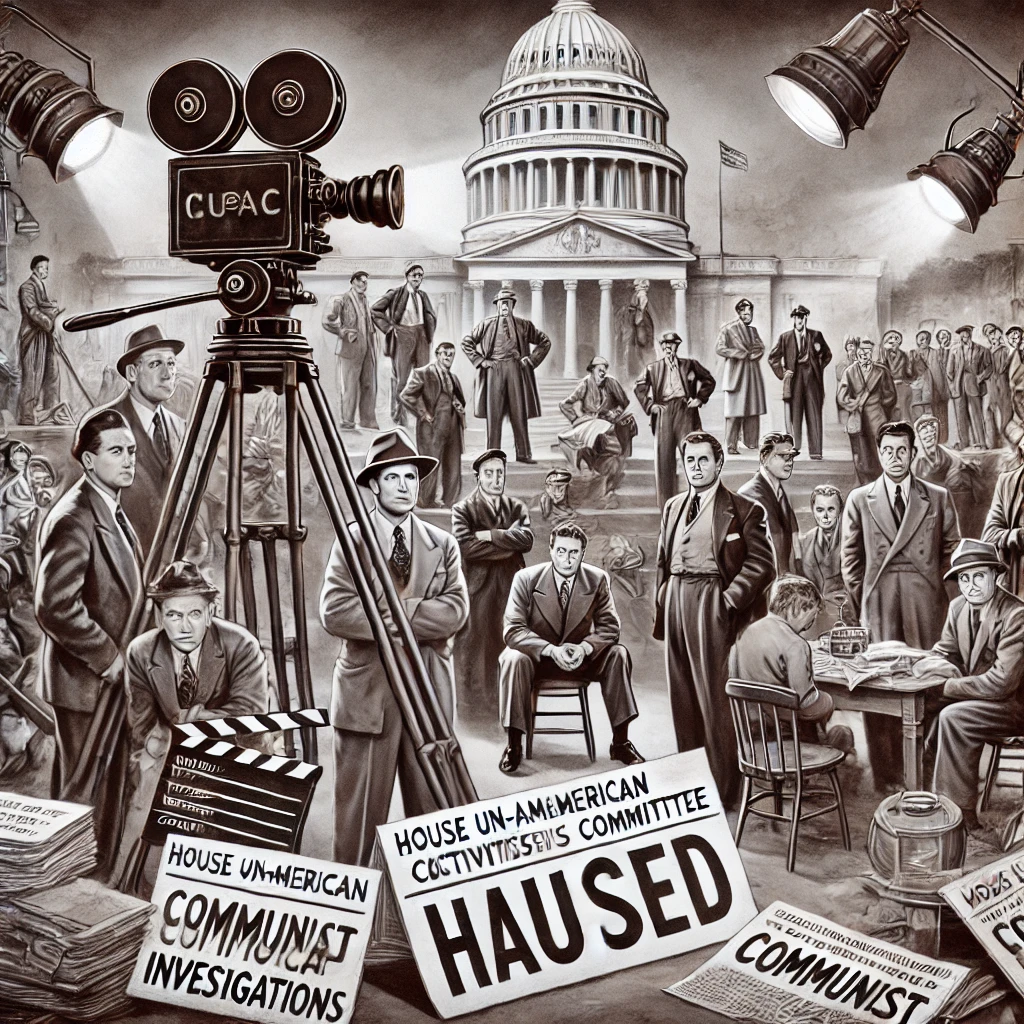On October 20, 1947, the House Un-American Activities Committee (HUAC) held its first hearings to investigate alleged communist influence in the American film industry. This event marked the beginning of a tumultuous period in Hollywood history, characterized by fear, paranoia, and widespread allegations of communist sympathies among artists and creators. The investigation would have lasting implications for the entertainment industry and American society, as it raised questions about artistic freedom and the impact of political ideology on cultural expression.

The Post-War Climate of Fear
The aftermath of World War II saw the rise of the Cold War, a period marked by intense rivalry between the United States and the Soviet Union. The spread of communism, particularly in Eastern Europe and Asia, fueled anxieties within the U.S., leading to a climate of fear and suspicion. Politicians and citizens alike were concerned about the potential infiltration of communist ideology into American institutions, including the arts.
Hollywood, with its influential reach and ability to shape public opinion, became a prime target for scrutiny. Allegations surfaced that communist sympathizers were using film and television to spread subversive messages. In this context, HUAC initiated its investigation, aiming to uncover and root out supposed communist influence within the entertainment industry. The hearings attracted significant media attention and set the stage for a nationwide debate over loyalty, censorship, and the freedom of expression.

The HUAC Hearings and the Hollywood Ten
The HUAC hearings began in earnest in October 1947, featuring testimony from various individuals in the film industry, including directors, producers, and actors. Among those called to testify were the “Hollywood Ten,” a group of screenwriters and directors who refused to answer questions regarding their political affiliations, citing their First Amendment rights. Their defiance led to their being cited for contempt of Congress and subsequently blacklisted in Hollywood.
The hearings revealed the deeply ingrained fears and suspicions of the time, as many witnesses provided names of alleged communists, often leading to damaging consequences for those accused. The atmosphere of fear extended beyond the hearings, as the threat of blacklisting loomed over many artists and filmmakers. Careers were ruined, and reputations were destroyed, as the film industry became embroiled in a pervasive culture of suspicion.
Impact on Hollywood and American Culture
The investigation into communism in Hollywood had profound implications for the film industry and American culture as a whole. The blacklisting of artists led to a chilling effect, stifling creativity and discouraging open dialogue about political and social issues in film. Many talented individuals were forced to work under pseudonyms or in exile, while others left the industry altogether.

The climate of fear fostered by the HUAC hearings also contributed to a broader societal atmosphere of paranoia. The McCarthy era, marked by Senator Joseph McCarthy’s aggressive anti-communist campaigns, intensified these fears and further marginalized dissenting voices. The repercussions of this period continue to resonate, raising important questions about the balance between national security and civil liberties.
The Legacy of the Investigation
The congressional investigation into communism in Hollywood serves as a cautionary tale about the dangers of political extremism and the erosion of individual rights. In the years following the hearings, there was a gradual movement towards greater acceptance of diverse political viewpoints in Hollywood, but the scars left by the blacklisting era remained. The legacy of the Hollywood Ten and others who faced persecution during this time is remembered as a testament to the importance of artistic freedom and the need to safeguard against political oppression.
Today, the events of 1947 serve as a reminder of the fragility of free expression in the face of societal fears. The investigation into communism in Hollywood not only reshaped the film industry but also left an indelible mark on American culture and politics. It underscores the importance of vigilance in protecting civil liberties and the value of diverse voices in the arts.
The congressional investigation into communism in Hollywood, beginning on October 20, 1947, was a significant moment in American history, reflecting the fears and tensions of the Cold War era. The hearings not only exposed the vulnerabilities of the film industry but also raised critical questions about the intersection of politics and art. As we reflect on this chapter of history, we recognize the importance of safeguarding freedom of expression and learning from the past to ensure that creativity is not stifled by fear or suspicion. The legacy of the investigation serves as a powerful reminder of the enduring struggle for artistic integrity and the need to protect individual rights in the face of societal pressures.
